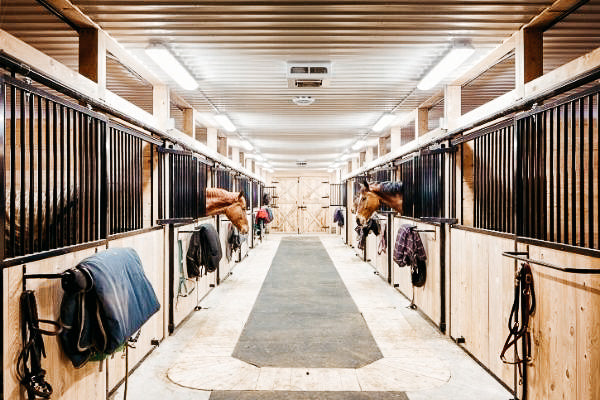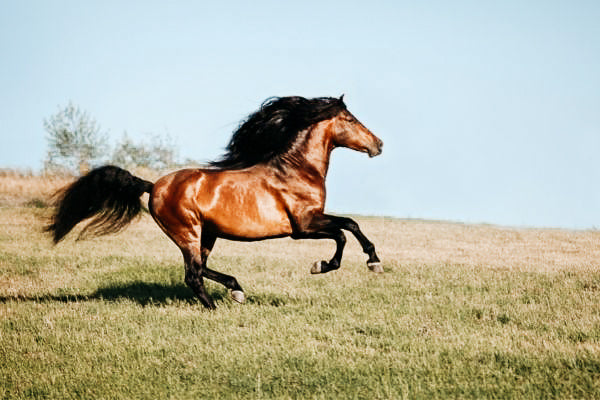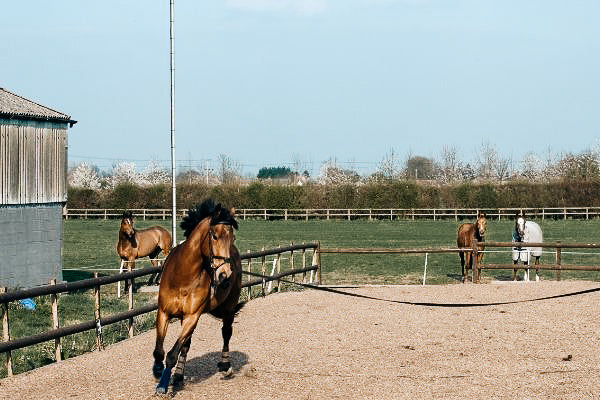
Changing stables – useful tips to avoid stress
In the lives of you and your horse, it can happen from time to time that you change stables. Be it that you have to move for work, the stable operator is closing due to age or health reasons, the requirements for your animal are not right or you are simply dissatisfied. There are many reasons.
If the topic of changing stables is now in the room, the following applies:
Whatever you can get today, postpone it.! This means that everything you can do early should be tackled. This saves you a hectic rush. After all, moving should be done calmly and carefully. You know, horses have antennae for things like that. They smell when something is in the bush.
Formalities
Find out how long the notice period is in your stable. Important: Don't cancel if you haven't found a suitable stable yet! That could backfire. After all, finding a stable is not an easy undertaking. You and your darling want to be happy in the new home in the long term, right?
To search for a stable:
Take farm tours, talk to farm owners and riders (is the chemistry right?) and consider whether the requirements (feed, grazing, exercise, integration options in open stables, etc.) vote for your horse/pony.
If you have spotted a new stable, have the owner's contract sent to you in advance. This gives you time to read it through to see whether the conditions there (e.g. b Worm treatments, stable rules, paddock times, hall plan) suit you. If so, congratulations!
Don't forget to ask your farrier/hoof orthopedist if he would also go to the new stable. If this is too far away, find an alternative that fits your hoof care intervals.
Process standing orders in a timely manner!
Also worth considering:
If your new stable is far away, your horse is difficult to load or you generally become a nervous wreck at big events, then think about requesting a day of vacation from your boss.
Horse health
A big topic before the move.
Clarify which vaccinations must be present, a health check (e.g. b because of strangles) and whether a worm treatment should be administered to the horse in advance.
It actually makes sense to give the horse a worm treatment before you change. The reason is that, on the one hand, it does not bring parasites into the new population and, on the other hand, it is not burdened twice if it takes in new ones.
Such recording conditions vary from riding stable to riding stable. The same applies of course to the open stable. So you ask and the vet is called promptly if necessary.
The horse health category also includes the animal's mental well-being. So it makes sense to see an animal health practitioner. Especially if “loading the horse” means stress for both of you.
Bach flowers are of great help to the horse. Small globules - big effect. Maybe something for your mood too? Bach flowers give the horse and owner some security back!
Was your partner previously in a riding stable and should now move to an open stable? Then the following must be considered:
Does my horse have enough winter fur or do I need to cover it additionally? Do horseshoes have to be removed? Can it be separated in order to socialize in a protected manner?
Very important:
Your horse will not be able to avoid a change in feed, regardless of whether it is in a riding stable or an open stable.
It would be helpful if you gave him e.g. b you could take a small bale of hay with you. When added to the new hay, the horse's sensitive digestive tract can adapt more easily.
Does your horse cope with the pasture times? If you have the choice, it's better to move in the summer months. Your horse is then already grazed and can make friends with the others more easily in a large pasture area.
Caution is also advised if there is a complete change in feed. For example, from hay to haylage or from lean pastures to strawy, lush overhang meadows. In the worst case scenario, your friend may develop colic. Even if your animal is suddenly placed on straw, this can upset its digestion. Colic is not something to be trifled with!
The transport to the new home
No questions should be left unanswered here. Those would be:
- Who can lend me a trailer if I don't own one?
- Do I drive or should someone else drive?
- I may need. a transport company?
- Have I already looked for all the things together as a precaution?
- Hay net stuffed for transport?
- Will my horse even go into the trailer?
To the latter it should be said:
Use the time to get your darling used to loading and trailering. Many horsemanship trainers offer great workshops in this regard. Very useful thing and definitely a task that you can grow with as a team. Loading a horse becomes child's play.
Choose a quiet place (without onlookers!) to load later! Then you'll be much more relaxed.
Finally here!
When you arrive at the new stable, examine your animal. Is everything okay? Excellent! If he is sweating, put a sweat blanket on him. Maybe a short tour of the site will help you? If it is still too excited, it is better to take the horse to his box/paddock.
As soon as the hay is pulled, peace usually returns. If the animal's drinking system has changed, it makes sense to observe whether the horse is drinking. And there is certainly nothing wrong with a relaxing massage with a massage curry comb.
Snort together. If you slowly breathe in and out loudly, your hottie will do the same.
Rejoice, you did it!
Discover more posts

Andalusians – Iberian beauties with class
Iberian horses are considered the main ancestors of every horse breed, along with the Arabian and Berber. Their popularity is therefore increasing far beyond national borders. As a h...
Continue reading
Building muscle through ground work – shape your animal!
But what about building muscle in horses? After all, it has to be able to carry us on its back, right? Preferably, it should also perform well at tournaments, shine in workshops and ...
Continue reading
